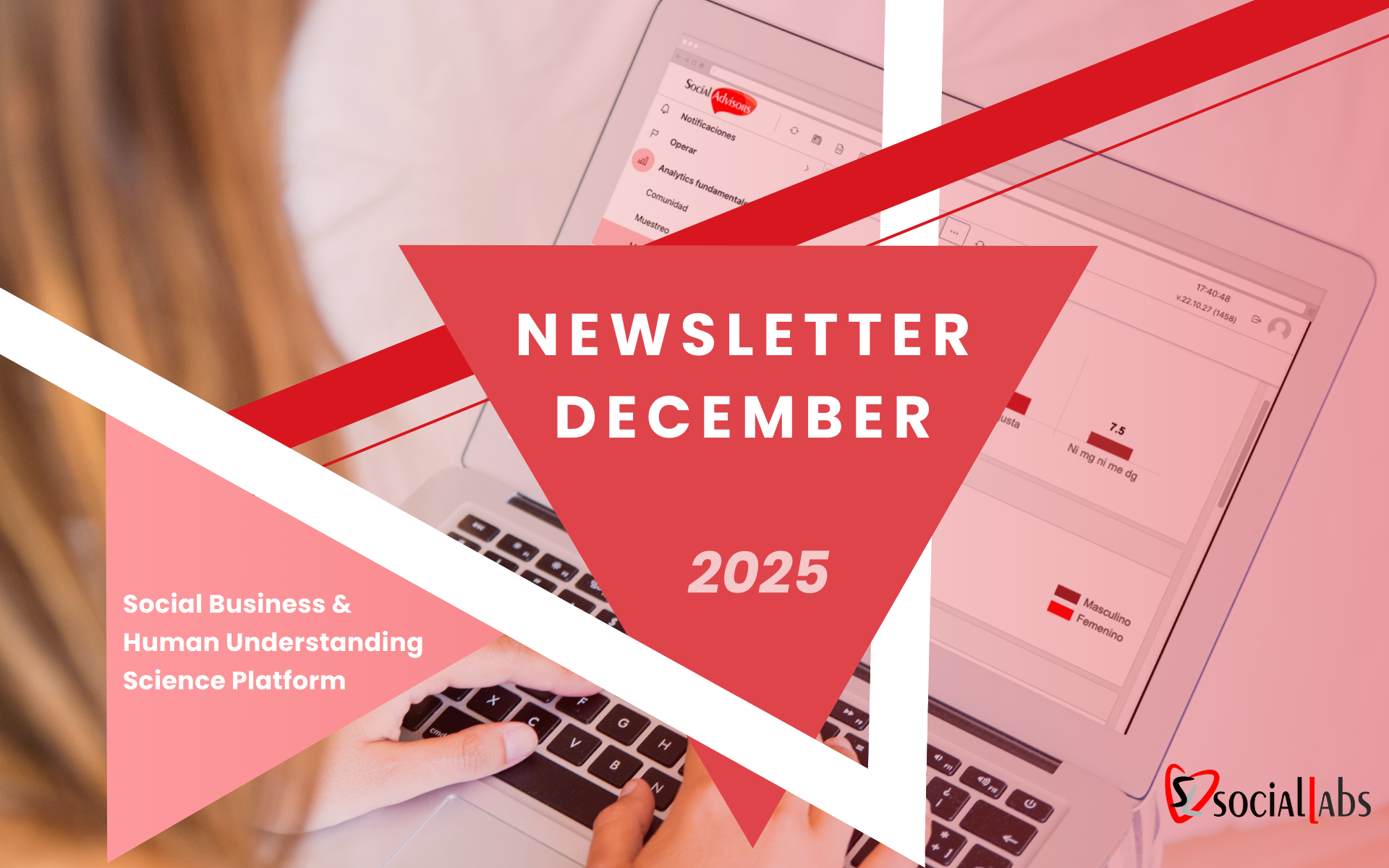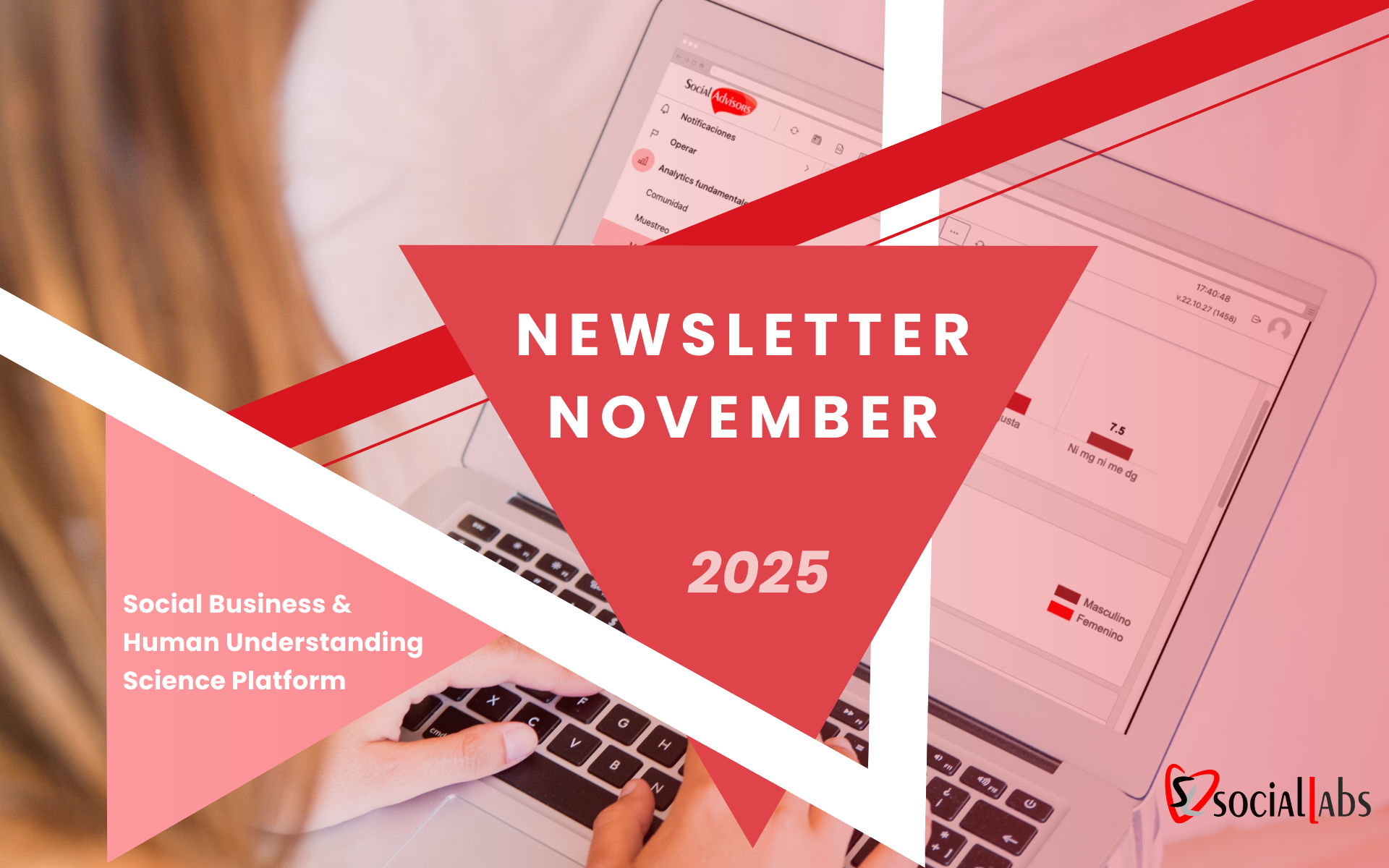Benefits and types of research
In such a changing world, digitalisation and process automation increase the efficiency, adaptability and speed of companies in understanding their current and future markets. However, although still in force, a traditional approach to product and brand knowledge is no longer sufficient, but it is absolutely necessary and differential to be in permanent contact with consumers and buyers, to know in real time their tastes and preferences, both of today, and to know how to project the preferences of tomorrow. The permanent interaction and in real time with the consumer, buyer and distributor means that in each interaction with them, we know more direct or indirect variables that condition the purchase or consumption of our products or brands, or those of the competition. It is the 360ª Human Understanding Science, putting the human being at the centre of your business. The more you know about the relevant variables that influence consumer and buyer behaviour, the more you know about your products, brands, competitors and business in general. It is the power of data, advanced analytics and artificial intelligence, at the service of your business. The competitiveness of your business today and tomorrow cannot be understood without the knowledge and total management of the associated data. Your business data is a strategic factor that must be managed and controlled by your own company, it cannot and should not be outsourced. To lose the management and control of your business data is to lose the knowledge of the main variables that affect your business, in other words, it is to put your business at total risk.
Through Social Advisors by Social Labs, a 360º Human Understanding platform, you can be in permanent contact with your Community of Consumers, Buyers, Distributors, i.e. your main stakeholders, and through numerous and diverse missions capture all kinds of insights in real time, and thus generate business knowledge with immediate applicability, through advanced analytics and heuristic modelling of data based on machine learning and deep learning. To be able to answer business questions based on consistent, real-time modelling of data and behavioural variables of buyers, consumers, distributors and competitors. In other words, to manage with the fundamental variables that have a direct impact on your present and future business.
The possibilities and benefits for a company are multiple:
- Helping to make strategic, tactical and operational decisions: information is business knowledge, so the more significant variables are known about a consumer, buyer, distributor, the better and faster decisions will be made, more informed and focused on the customer. Speed of decision and execution is a key success factor in today's business.
- For new product launches, it is necessary to know the market trends and tastes of a brand's consumers and buyers and thereby align optimally with their preferences, tastes and purchasing power.
- Information about our consumers and buyers: it is key to know the habits and tastes of consumers and buyers beyond our current products, analysing their profiles and behaviours, in order to align ourselves as much as possible with their present and future needs.
- To increase competitive advantage and to know in detail and differentiate ourselves from competitors.
- Cost savings and greater speed of reaction and execution: having the right information at the right time helps to improve critical business decisions and processes that condition our competitiveness.
- Knowing market trends is crucial, not only to compete today, but above all to remain competitive and profitable in the future.
.png)
Social Advisors is Social Labs' Social Business platform to keep a company and its buyers, consumers and distributors in constant communication and interaction.
The methodology to generate all kinds of missions with the Community of Consumers, Buyers, Owners is very simple but effective:
- Definition of the project
- Selection of the method of interaction and communication with the Community and its segmentation and target.
- Elaboration, execution and follow-up of the mission
- Monitoring of participation and generation of insights
- Generation of advanced analytics in real time
- Heuristic modelling through Machine Learning and Deep Learning
.png)
What types of market research can we carry out?
There are multiple ways to classify mission typologies as well as qualitative, quantitative, primary or secondary market research. Social Advisors provides an extensive catalogue of pre-defined products for companies to get the insights they need in an immediate, complete and consistent way:
- Brand strength assessment: to measure brand positioning and how the brand is perceived in the market.
- In-store execution assessment: to evaluate and verify the execution of advertising and promotional strategies at the point of sale.
- Product evaluation: to determine whether a product has the right characteristics to meet consumer needs and to determine its success in the marketplace.
- Tracking consumer behaviour: to understand the consumer by looking at their digital interests, travel and the main points of concentration.
- Innovation lab: to find creative answers and solutions to meet customer and market needs and expectations.
- Communication strength evaluation: to measure the level of acceptance, effectiveness and performance of the advertising campaign.
- Evaluation of packaging: to assess the level of consumer acceptance of the packaging and the main drivers it generates in consumers.
- Social evaluation: to understand the impact of social, cultural, economic and political events on consumers' lives.
- Consumer portrait: to determine the profile of consumers, complementing the demographic profile with variables such as purchasing and consumption habits, journeys, lifestyle.
- Price tracking: to monitor the price behaviour of own and competitor products, directly at the point of sale to adjust depending on the environment.
If you want to read more about passive tracking: https://blog.sociallabs.biz/post-en/consumer-understanding-360o.
%20(1)%20copy.png)
%20(1).jpg)


